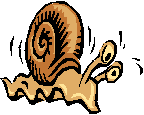Schistosomiasis
What Is Schistosomiasis?
Schistosomiasis, also known as Bilharzia, is a parasitic infection acquired through contact with freshwater throughout the tropics and subtropics. The major forms in humans are caused by water-borne flatworms or blood flukes called schistosomes.
Schistosomisasis is an increasing concern for travellers, particularly those undertaking 'off the beaten track' adventure tours around freshwater areas that are endemic for the disease.
How Do I Get It?

Infection occurs when your skin comes in contact with contaminated freshwater in which certain types of snails that carry schistosomes are living. These snails release large numbers of tiny free-swimming larvae into the water. These larvae can penetrate the unbroken skin of a person who comes in contact with infested water and migrate to veins around the liver or bladder where mature worms produce eggs. Adult worms can live up to 15 years and produce large numbers of eggs that exit the body through urine or faeces. Freshwater becomes contaminated when infected people urinate or defaecate in the water.
What Are The Symptoms Of Schistosomiasis?
Early infection is usually not symptomatic in persons who live in endemic areas or in persons with light infections. However, expatriates and travellers without previous exposure may become seriously ill in the early stages of acute infection. A few hours after contact with schistosomes the person may experience tingling of the skin with a rash where the larvae enter the body ('swimmers itch'). This rash usually resolves within 24 hours.
Weeks later, once the adult worms begin to produce eggs, the person may develop flu-like symptoms, with high fever, malaise, cough, diarrhoea and hives. The liver and spleen can also be affected. Most of the harmful effects of the disease in humans are caused by the reaction to the schistosome eggs. Long-term consequences of infection include severe liver disease, kidney failure, and bladder cancer.
In What Areas Of The World Does Schistosomisis Occur?

Africa : all of sub-Saharan Africa especially Lake Malawi,
Lake Kariba, Nile River Valley in Egypt
South America: Brazil, Suriname, Venezuela
Caribbean; Antigua, Dominican Republic, Guadeloupe, Martinique, Montserrat, Saint Lucia (low risk)
Middle East : Iran, Iraq, Saudi Arabia, Syrian Arab Republic, Yemen
South East Asia : Philippines, Laos, Cambodia, Japan, central Indonesia, Mekong Delta, Southern China
How Can I Prevent Schistosomiasis?

Infection in travellers is usually acquired by bathing, swimming, wading, boating or rafting in infested waters. Even brief exposure can lead to infection since the larvae can penetrate intact skin within 30 seconds to 10 minutes. Risk of infection may be minimised by the following strategies:
- Never assume that freshwater is free of schistosomes in an endemic area: even deep lake water far offshore cannot be regarded as safe. If water exposure cannot be avoided, wear protective footwear or clothing (rubber boots and wetsuits) and by applying DEET containing insect repellent.
- The larvae die quickly when removed from the water and cannot survive drying; therefore quick drying of exposed skin and clothing provides some protection.
- Chlorinated water or water stored in a snail-free container for 48 hours is safe.
- Drink safe water . Either boil water for 5 minutes or filter water before drinking it. Iodine treatment alone will not guarantee that water is safe and free of all parasites.
- Bath water should be heated for 5 minutes at 65°C. Water held in a storage tank for at least 48 hours should be safe for showering.
How Is Schistosomiasis Diagnosed And Treated?
A screening test of urine, stools and blood can be undertaken on your return home if you are concerned about exposure. From the time of infection it takes about 4 weeks for eggs to appear in the stools, and about 12 weeks for them to appear in the urine. If you have no symptoms, screening is best performed 3 months after possible exposure to the parasite. Schistosomiasis is treatable with a 1-2 day course of anti-parasitic medication. See your Travel Clinic doctor if you think you may have been exposed to schistosomiasis.
Updated August 2021.


